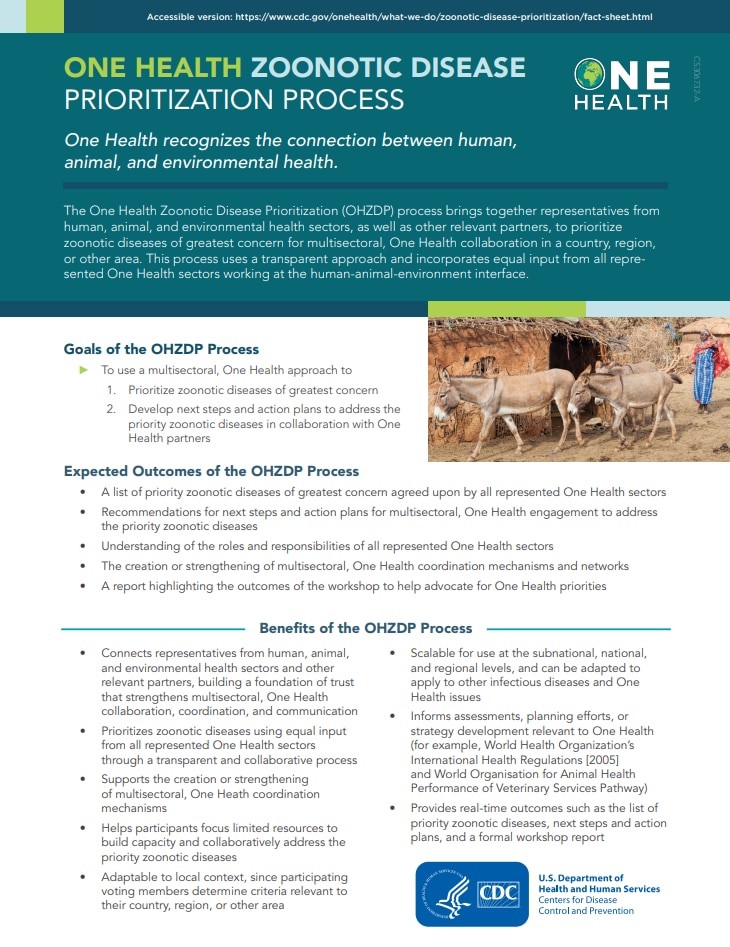At a glance
Experts from CDC’s One Health Office lead One Health Zoonotic Disease Prioritization (OHZDP) workshops in countries, regions, and other areas to help them prioritize their top zoonotic diseases of greatest concern.

About the process
The OHZDP process brings together representatives from human, animal, and environmental health sectors, as well as other relevant partners, to prioritize zoonotic diseases of greatest concern for multisectoral, One Health collaboration in a country, region, or other area. This process uses a transparent approach and incorporates equal input from all represented One Health sectors working at the human-animal-environment interface.
The goals of the OHZDP process are to use a multisectoral, One Health approach to
- Prioritize zoonotic diseases of greatest concern
- Develop next steps and action plans to address the priority zoonotic diseases in collaboration with One Health partners
The OHZDP process uses a multisectoral, One Health approach to prioritize zoonotic diseases of greatest concern that should be jointly addressed by human, animal, and environmental health sectors in a country, region, or other area. The CDC-developed OHZDP tool assists with this process.

OHZDP Overview
About the workshops
The OHZDP Workshop is a voluntary and collaborative process that allows countries, regions, and other areas to do the following:
- Develop a list of priority zoonotic diseases of greatest concern agreed upon by all represented One Health sectors
- Create recommendations for next steps and action plans for multisectoral, One Health engagement to address the priority zoonotic diseases
- Understand the roles and responsibilities of all represented One Health sectors
- Create or strengthen multisectoral, One Health coordination mechanisms and networks
- Develop a report highlighting the outcomes of the workshop to help advocate for One Health priorities
Workshops and Reports
Workshop participation can help strengthen multisectoral, One Health collaborations by connecting representatives from human, animal, and environmental health sectors and other relevant partners. During the workshop, participants prioritize zoonotic diseases using equal input from all represented One Health sectors through a transparent and collaborative process.
The workshop helps participants focus limited resources to build capacity and collaboratively address the priority zoonotic diseases, and informs assessments, planning efforts, and strategy development relevant to One Health. The process is adaptable to local context and scalable for use at the subnational, national, and regional levels, and can be adapted to apply to other infectious diseases and One Health issues.
After the workshop, CDC experts continue to work with participating areas when needed and have provided support to develop their strategies to help mitigate their greatest zoonotic disease threats, implement and strengthen One Health approaches, address specific zoonotic diseases, and further the goal of a world safe and secure from health threats.
Did you know?
If you are interested in planning a One Health Zoonotic Disease Prioritization Workshop, contact the CDC One Health Office at [email protected].
